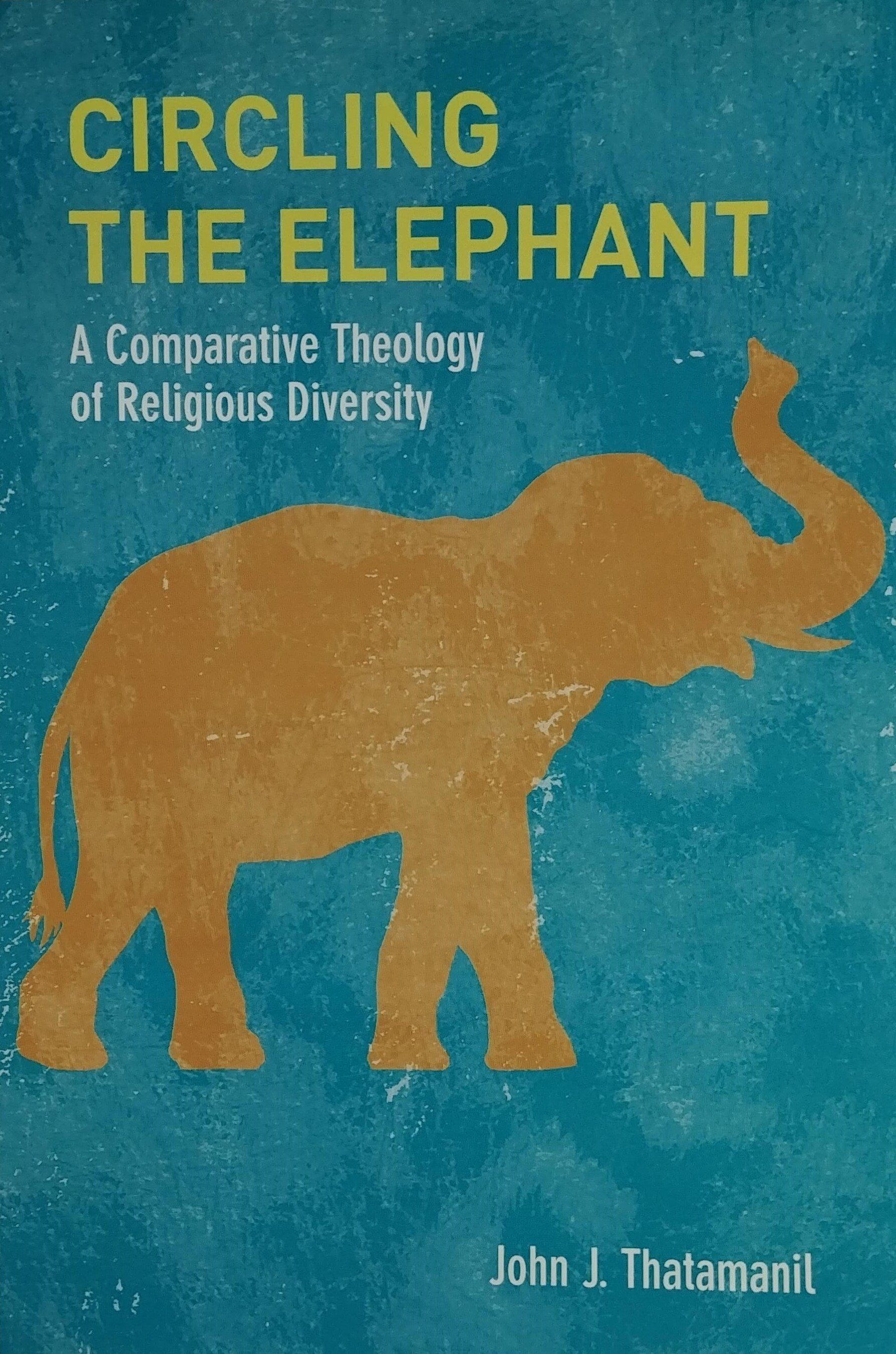A H Harry Oussoren • January 3, 2021
From General to Generation - Series

The Opportunity for InterFaith Learning
The 9th post (October 28th, 2020) in the “From Generation to Generation” series in my Pilgrim Praxis blog focused on the “Great Commission” (https://www.minister.ca/revisiting-the-great-commission). It pointed me (and I hope, you) in the direction of connecting with people of other faiths. Prods included: the “Golden Rule” as a core, widely-affirmed theological conviction; the "Great Commandment" as a core tenet for human life; “Gifts of the Spirit” – shared human qualities - that transcend faith boundaries; and actions rooted in faith to foster justice and human well-being beyond particular faith traditions.
Blog Post Feedback
A feedback comment to the post by former colleague reminded me that in the Christian tradition often sayings attributed to Jesus appear more closed or exclusive than Jesus’ actions revealed in Gospel narratives. They tell of his reaching out to others well beyond the limitations of his faith tradition and cultural community (e,g. the parable of the Good Samaritan; the story of the Syrophoenician woman; the Zacchaeus encounter, the healing of Centurion’s servant, passim.) U agree this is an important motivator for interfaith action and learning.
My overall argument was that the divine Spirit endows everyone in the human family with gifts that call friends and companions of Jesus toward interfaith reflection and learning. These gifts are common to all human recipients across all boundaries and need to be explored, cultivated, and celebrated as commonly shared divine blessings.
More Feedback and a Resource
Another comment on the post that I received gratefully was the fact that there is a growing discipline of theologians – Christian and beyond - who are conscious of the silos which have largely kept Christian theologians talking to others within their silo. I was encouraged to read a book by John J Thatamanil, Associate Professor of Theology at New York’s Union Theological Seminary. Entitled “Circling the Elephant – A Comparative Theology of Religious Diversity.” The volume introduces readers to the task of exploring religious diversity, engaging in comparative theology, and opening the vista of constructive theology with the faithful of other traditions. Happily Thatamanil revealed (at least to me) that there is a substantial body of scholars and writing on this increasingly urgent agenda. (See bibliographical note below.)
Christianity's Genealogy
The point: Christian theology didn’t fall from the sky. When we look at the origins of the Christian faith – its genealogy – we recognize that it grew out of human experiences of the divine and from human interaction. Christianity did not come pre-packaged. It came to life as the stories of Jesus were read in light of Hebrew scriptures and in engagement with Jews. It dialogued with and learned from various philosophical and religious trends and movements in the Mediterranean world. It expanded – too often with military support – into the northern European countries, often adopting “pagan” practices. And so on....
Says Thatamanil:
“A careful exploration of Christian traditions would reveal a steady stream of moments in which Christian thinkers were shaped by encounters with a variety of non-Christian interlocutors – Jews and eventually Muslims, but also with the “discovery” of the New World, the various indigenous traditions of North and South America. Even the variety within European Christianities shows that there has never been a singular and pristine Christianity without admixture. “Pagan” traditions have always shaped the ritual lives and theological sensibilities of every local form of Christianity.” (p.25)
Tribal Silo Theology or....?
As time went on Christian theology appeared increasingly to become self-sufficient and its boundaries hardened. Given the firm belief that there is only one God, it was not difficult to adopt a tribal position that the one God of Christians had global and universal sovereignty. The resurrection of the victorious Christ gave rise in his disciples to superiority and domination rationales. The Great Commission articulated the wisdom that all the world should, therefore, be made disciples of Jesus and children of the one triune God. Anything beyond could be deemed to be “heathen” or “heretical” and in conflict with the Christianity defined by its theological and ecclesiastical authorities and their dogmatic dictates.
Any THEO-logy – study of God - has to take seriously the global, universal, transcendent reality of the divine. To seek to limit theological learnings only to the Christian silo is a sign of hubris, and at the same time evidence of a lack of imagination and deficient inspiration diminishing the holy. We know that human finitude means that God – the infinitely holy – is well beyond our ability to comprehend. Even the most devout Christian recognizes that at best we can only apprehend the divine. God always eludes our ability to comprehend and define – God will not be boxed in. Too often, Christians have appeared to claim theological omniscience. As friends and companions of Jesus we have reason to recover humility and break open the boxes curtailing a deeper apprehension of the divine.
Fear of Syncretism
At the same, we need to overcome fear of syncretism, which too often blocks conversation with other faiths. Learning to become open to the truth and wisdom that others’ faith convictions offer and can contribute to enlarging our understanding of the divine is a pressing priority in our time. The boogey man of syncretism needs to be confined and the ubiquity of the Spirit needs to be grasped. Hence the contemporary task for theologians in an ever smaller world is to break out of the Christian silo, discover and appreciate practical theological assets of other faiths, explore those assets, and be open to mutually enhancing the wisdom and truth which is of God.
It is because all humans are the children of God and share the gifts of the divine Spirit that we are not only able, but called, to enlarge our theological conversation beyond silo partners and to include in conversation others whom the Spirit has also endowed with the gifts that cultivate love of God, love of neighbour, justice, hope, joy and Shalom among humans and in creation.
Thatamanil argues:
“Other traditions are not celebrated as variations of one’s own but are instead appreciated for the richness of their concrete claims, aims, and practices. Such receptivity is also rooted in a theological humility about one’s own tradition. Even if maximal claims are made about the salvific power of what is disclosed in one’s own tradition, the hospitable recipient believes that genuine learning is possible through encounter and conversation with religious neighbors. Others know what I do not yet know; other traditions and their adherents have access to practical disciplines that can deepen my own spiritual life.” (p. 196)
Affirmation and Addition
I affirm the intention and the practices Thatamanil calls us to embrace. Given the Christian history of superiority and dominance, repentance and learning the ways of humility can be counted as prerequisites to pursuing the goal of mutual exploration and appreciation.
I believe however that it is urgent to add a key theological reason for the vocation. The ubiquitous Spirit of the Holy One is alive and present to the others who are our siblings in the one human family. Getting to know them and what has inspired them to faithfulness is worthy of our attention and understanding and, I would hazard, be required for our growth as humans and as children of God. Friends and companions of Jesus - Christians - are freed and called to discover how the Spirit has blessed others’ lives and to rejoice together in their discovery of wisdom and in truth.
The Gift of the New Discipline
We are blessed that Thatamanil is among a growing number of Christians calling for theological endeavors that are honest about its roots, humble about its testimonies, and open to the devotion and wisdom of others’ experience of the divine. Their work and witness is timely. I believe their work is a response to the call of the Holy One to engage in cultivating the blessing of relating creatively and appreciatively to sisters and brothers of other faith traditions. The prospects are promising! The rewards may be an increase in good will to all and peace on Earth.
~ ~ ~ ~ ~ ~ ~ ~ ~ ~ ~ ~ ~ ~ ~
Bibliographical Information:
Thatamanil, John J., Circling the Elephant – A Comparative Theology of Religious Diversity.
New York, Fordham University Press, 2020. ISBN 978-0-8232-8773-4. In the series: Comparative Theology / Thinking Across Traditions, which “engages in constructive theological reflection that draws from the resources of more than one religious tradition.” Series editors: Loye Ashton & John Thatamanil.
Included in this Thinking Across Traditions
series are two contributions by Michelle VossRoberts, the current Principal of Toronto’s Emmanuel College in the University of Toronto: Taste of the Divine: Hindu and Christian Theologies of Emotion; and (as editor:) Comparing Faithfully: Insights for Systematic Theological Reflection.

